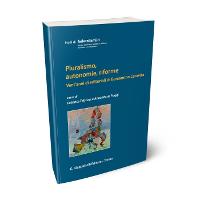
Log in or Create account
FOCUS - Africa N. 3 - 11/12/2019
Is the EU-ACP partnership still suitable for Africa?
The Cotonou Partnership Agreement (CPA) establishes a broad partnership between the EU and 79 African, Caribbean and Pacific countries (ACP). As a whole, the agreement brings together more than one hundred countries, representing a population of more than one and half billion people. The grouping was initially based on a shared colonial condition. In 1957, the Treaty of Rome, while not providing any competence in the field of development aid, envisaged the association with the fledgling European Economic Community of "non-European countries and territories which have special relations with Member States" (art.131, italics added). Since then, a "special relation" with these countries has been maintained through the Yaoundé Agreement (in force from 1965 to 1975) and the subsequent Lomé Conventions (1975 to 2000). In 2000, the Cotonou Agreement notably enlarged the partnership, adding new fields of cooperation and increasing its ambitions. The agreement is based upon three pillars: development, trade and "political dialogue". The first pillar, development, is currently implemented on the basis of joint programming, aiming to increase partners' ownership and accountability. The partnership receives... (segue)
NUMERO 23 - ALTRI ARTICOLI
-
ITALIA - DOTTRINA
La sicurezza giuridica e la razionalità amministrativa
ITALIA - DOTTRINAIn controtendenza. Note sull'ammissibilità del referendum elettorale per i collegi uninominali
-
ITALIA - DOTTRINA
La Brexit senza accordo nel campo dei servizi bancari e finanziari
ITALIA - DOTTRINAForze armate e ordine pubblico: le coordinate costituzionali
ITALIA - DOTTRINALa Corte e la libertà sindacale dei militari
-
ITALIA - DOTTRINA
La frammentazione del processo decisionale e l’equilibrio costituzionale tra i poteri
ITALIA - DOTTRINAPercorsi di accesso alla tutela dei diritti sociali
ITALIA - DOTTRINALa dimensione territoriale dell'oblio



 Registrati
Registrati Login
Login
 Riforme istituzionali e forma di governo
Riforme istituzionali e forma di governo Lavoro Persona Tecnologia
Lavoro Persona Tecnologia Osservatorio di Diritto sanitario
Osservatorio di Diritto sanitario Osservatorio Trasparenza
Osservatorio Trasparenza Africa
Africa Human Rights
Human Rights America Latina
America Latina Territorio e Istituzioni
Territorio e Istituzioni Storico focus
Storico focus Scarica il Documento integrale
Scarica il Documento integrale
 STUDI FEDERALISMI
STUDI FEDERALISMI





15/12/2023
21/07/2023
14/12/2022
05/08/2022
15/12/2021
15/09/2021
28/04/2021
25/11/2020
15/07/2020
29/04/2020
11/12/2019
10/07/2019
10/04/2019
19/12/2018
11/07/2018
21/03/2018
20/11/2017
21/07/2017
20/02/2015
14/07/2014
14/03/2014
05/07/2013